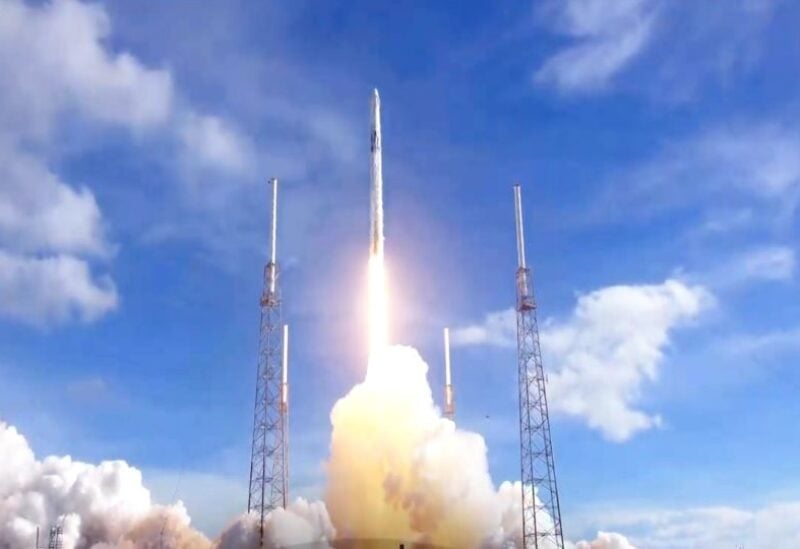
SpaceX Falcon 9 rocket with the unmanned Dragon cargo
According to analysts, a piece of a SpaceX rocket that launched seven years ago and was abandoned in orbit after completing its mission will crash into the Moon in March.
In 2015, the rocket was used to launch a NASA satellite named the Deep Space Climate Observatory into orbit.
According to astronomer Bill Gray, the rocket’s second stage, or booster, has been floating in what mathematicians call a chaotic orbit since then.
Gray calculated the new collision course of the space junk with the Moon.
According to Gray, the rocket traveled rather near to the Moon in January during a rendezvous that changed its orbit.
He is the creator of Project Pluto, software that calculates the route of asteroids and other objects in space and is utilized in NASA-funded space monitoring programs.
Gray observed the rocket stage again a week after it zipped near to the Moon and decided it will actually smash on the satellite’s dark side on March 4.
Gray asked amateur astronomers to assist him in viewing the booster, which is bright and easy to spot, and his conclusion was verified.
The precise timing and location of impact may differ somewhat from his prediction, but there is universal agreement that there will be a collision on the Moon that day.
“I’ve been following this type of garbage for nearly 15 years. And this is the first time we’ve had an unintended lunar impact,” Gray told AFP.
The collision of this four-ton object on the Moon will not be observed in real time from Earth.
However, it will leave a crater that scientists can observe using NASA’s Lunar Reconnaissance Orbiter or India’s Chandrayaan-2 satellite, allowing them to learn more about the Moon’s geology.
Previously, spacecraft were intentionally crashed into the Moon for scientific purposes.
NASA, for example, sent a rocket stage into the Moon near its south pole in 2009 to search for water.
However, most rockets do not travel that far from Earth. SpaceX returns its rocket boosters to Earth’s atmosphere, where they disintegrate over the ocean.
Gray believes that as the US and Chinese space projects leave more debris in orbit, there may be more inadvertent Moon collisions in the future.